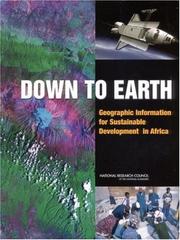| Listing 1 - 10 of 5360 | << page >> |
Sort by
|
Book
ISBN: 1837691339 Year: 2024 Publisher: [s.l.] : IntechOpen,
Abstract | Keywords | Export | Availability | Bookmark
 Loading...
Loading...Choose an application
- Reference Manager
- EndNote
- RefWorks (Direct export to RefWorks)
Unlock the future of global economics and business with New Topics in Emerging Markets. This captivating edited volume is your gateway to understanding the dynamic forces shaping economies on the rise. Delve into critical themes like financial resilience in times of crisis, the impact of technology in Sub-Saharan Africa, the evolving landscape of education in the metaverse, and much more. With diverse insights from leading minds, this book explores the intricacies of banking, innovation ecosystems, leadership in sports, and the ever-changing realm of e-commerce in a Web3 world. Gain a deeper understanding of emerging markets and their pivotal role in the global landscape. Whether you are a seasoned expert or just starting your journey in economics and business, this book offers a thought-provoking and accessible exploration of the challenges and opportunities that define the future. Don't miss your chance to stay ahead of the curve - grab your copy today and embark on a journey into the heart of emerging markets.
Book
ISBN: 9781108839150 9781108984515 9781108989381 Year: 2021 Publisher: Cambridge Cambridge University Press
Abstract | Keywords | Export | Availability | Bookmark
 Loading...
Loading...Choose an application
- Reference Manager
- EndNote
- RefWorks (Direct export to RefWorks)
"Public banks are neither ultimately good nor bad but made and remade by contentious social forces. They are dynamic institutions. Set against the backdrop of financing a global green & just transition, this first single-authored academic book on public banks explores six case studies - the China Development Bank, the Nordic Investment Bank, the NABARD (India), Bank of North Dakota (US), the KfW (Germany), and the Banco Popular y de Desarrollo Comunal (Costa Rica). It evidences how public banks have acquired the representative structures, financial capacity, institutional knowledge, collaborative networks, and geographical reach needed to tackle challenges like decarbonisation, definancialisation, and democratisation. These six cases are hardly isolated. There are over 900 diverse public banks worldwide holding trillions in financial assets. None of them are without contradictions, pulled as they are between contending public and private interests in class-divided society. Yet it is because public banks are dynamic and socially contested institutions that they can be made to serve the public good"--

ISBN: 0749430931 9282874567 9789282874561 9780749430931 Year: 1999 Publisher: Luxembourg Office for official publications of the European communities
Abstract | Keywords | Export | Availability | Bookmark
 Loading...
Loading...Choose an application
- Reference Manager
- EndNote
- RefWorks (Direct export to RefWorks)
Book
ISBN: 0821354361 9786610084128 128008412X 0585462704 Year: 2003 Publisher: Washington, D.C. : World Bank,
Abstract | Keywords | Export | Availability | Bookmark
 Loading...
Loading...Choose an application
- Reference Manager
- EndNote
- RefWorks (Direct export to RefWorks)
This is the sixth Annual Review of Development Effectiveness (ARDE), covering the year 2002, whose findings indicate that the Bank's country, sector, and global programs are consistent with the Millennium Development Goals (MDG) themes, increasingly focused on poverty reduction. The review assesses, and evaluates the outcomes of its development assistance, indicating that at the project level, outcomes continue to improve, with seventy seven percent satisfactory ratings in FY01 (exceeding for a second year the Strategic Compact target of seventy five percent); over two thirds of projects were rated as likely, or highly likely to be sustained; and, one half rated as having substantial, or higher institutional development impacts. Sector strategies show increasing attention to poverty linkages, although findings suggest intensified efforts in the identification of relevant development outcomes, and corresponding intermediate indicators, as well as strengthening capacities, and incentives to monitor, and evaluate development outcomes. The Bank must move from recognizing the multi-sectoral determinants of development outcomes, to developing and implementing cross-sectoral strategies. Above all, the Bank needs to fully assess the implications at the corporate, country, sector, and global levels of the MDGs, and address these implications in its use of lending, and administrative resources.
BUSINESS & ECONOMICS --- Development / Economic Development --- Poverty --- Statistical methods. --- Mathematical models.
Book
ISBN: 9814345997 9971902915 Year: 1985 Publisher: Singapore : Institute of Southeast Asian Studies,
Abstract | Keywords | Export | Availability | Bookmark
 Loading...
Loading...Choose an application
- Reference Manager
- EndNote
- RefWorks (Direct export to RefWorks)
This study examines the relationship of the dilemma and options faced by the Vietnamese leadership in planning reconstruction and development within socialism.
Book
ISBN: 0262355485 Year: 2019 Publisher: Cambridge : MIT Press,
Abstract | Keywords | Export | Availability | Bookmark
 Loading...
Loading...Choose an application
- Reference Manager
- EndNote
- RefWorks (Direct export to RefWorks)
Economists offer rigorous quantitative analyses of how the institutional design and purpose of the WTO (and its progenitor, the GATT) affect economic development.The World Trade Organization (WTO) was established partly to support economic development in developing countries through international trade. This goal has been elusive, with some questioning the WTO's ability to achieve such a goal. In this volume, leading scholars in the economics of international trade offer rigorous quantitative analyses of how the institutional design and purpose of the WTO (and its progenitor, the GATT) affect economic development. The volume begins with analyses of market access concessions that have been or could be exchanged between developing and developed countries, from a formal framework for incorporating non-tariff measures into a model for analyzing a multilateral trade agreement to an examination of the MFN (most-favored nation) free rider problem. Contributors then develop new theoretical and econometric approaches for understanding key aspects of trade liberalization under the GATT/WTO that are of particular relevance to economic development, considering such topics as achieving cooperation in eliminating prohibitive trade barriers and the effect of China's export subsidies on its dramatic growth in exports. Finally, the book considers two significant new issues that arose from the Uruguay round, from which the WTO was formed: the TRIPS agreement, regulating intellectual property; and the resolution of trade disputes with and without litigation. Taken together, these analyses shed new light on the relationship between trade liberalization and economic development as well as the WTO's effectiveness.
Multi
ISBN: 9781107115231 9781107535602 9781316335703 110711523X 1107535603 1316335704 1316557588 1316560317 Year: 2017 Publisher: Cambridge Cambridge University Press
Abstract | Keywords | Export | Availability | Bookmark
 Loading...
Loading...Choose an application
- Reference Manager
- EndNote
- RefWorks (Direct export to RefWorks)
In the second edition of this user-friendly book, Olivier de La Grandville provides a clear and original introduction to the theory of economic growth, its mechanisms and its challenges. The book has been fully updated to incorporate several important new results and proofs since the first edition. In addition to a progressive treatment of dynamic optimization, readers will find intuitive derivations of all central equations of the calculus of variations and of optimal control theory. It offers a new solution to the fundamental question: How much should a nation save and invest? La Grandville shows that the optimal savings rule he suggests not only corresponds to the maximization of future welfare flows for society, but also maximizes the value of society's activity, as well as the total remuneration of labour. The rule offers a fresh alternative to dire current predictions about an ever-increasing capital-output ratio and a decrease of the labour share in national income.
Economic development --- Economics --- Mathematical models --- BUSINESS & ECONOMICS / Development / Economic Development. --- Business & economics / development / economic development. --- Economic development. --- Mathematical models. --- Economic growth --- Economics - Mathematical models

ISBN: 0309084784 9786610183487 1280183489 0309500214 9780309500210 9780309084789 0309169259 Year: 2002 Publisher: Washington, D.C. : National Academy Press,
Abstract | Keywords | Export | Availability | Bookmark
 Loading...
Loading...Choose an application
- Reference Manager
- EndNote
- RefWorks (Direct export to RefWorks)
BUSINESS & ECONOMICS --- Development / Economic Development --- Sustainable development --- Economic geography --- Business & Economics --- Economic History --- Africa --- Economic conditions.
Book
ISBN: 9789633865026 9633865026 Year: 1993 Publisher: Budapest New York
Abstract | Keywords | Export | Availability | Bookmark
 Loading...
Loading...Choose an application
- Reference Manager
- EndNote
- RefWorks (Direct export to RefWorks)
In this work, comprehensive comparative information on five Central European countries has been collected by teams of researchers from both within the region and from the West. Following an introduction to the economic environment in each country, it provides an overview of the privatization process, including an account of the legal framework of ownership, institutions for state regulation, an overview of privatization programmes and the initial transformation of enterprises. A key feature of the book is the authors' access to hitherto unavailable information and their ability to present a vast amount of material in an easily available format. Aimed at policy makers and business people, the work should provide a strong foundation for future research.
Book
ISBN: 3111071251 Year: 2023 Publisher: Berlin/Boston : Walter de Gruyter GmbH,
Abstract | Keywords | Export | Availability | Bookmark
 Loading...
Loading...Choose an application
- Reference Manager
- EndNote
- RefWorks (Direct export to RefWorks)
This book explores the interactions between private sector development, public policies and societal institutions with a strong view on contributing to sustainable and inclusive development in emerging countries. The private sector is often praised as an engine of economic growth. This belief has led to significant efforts to promote private sector development in emerging countries. Development agencies prioritize private sector development and national governments are following suit, resulting in often huge incentives to stimulate and attract private investment. However, private sector development is not a panacea for sustainable and inclusive development as the past decades have clearly shown. Economic growth, societal development and environmental sustainability are often in a sharp conflict; and more often than not economic growth has failed to improve the lives of all citizens. This book examines the role the state and the private sector should play to benefit from the dynamics of business development, while ensuring that these benefits are shared broadly without jeopardizing sustainability. The views presented differ in detail, but the analyses and case studies presented share common themes, namely that the relative roles of state and private sector of should be balanced and that this particular balance should be based on the context of each country in order to make the private-public sector interaction work for all people.
| Listing 1 - 10 of 5360 | << page >> |
Sort by
|

 Search
Search Feedback
Feedback About UniCat
About UniCat  Help
Help News
News